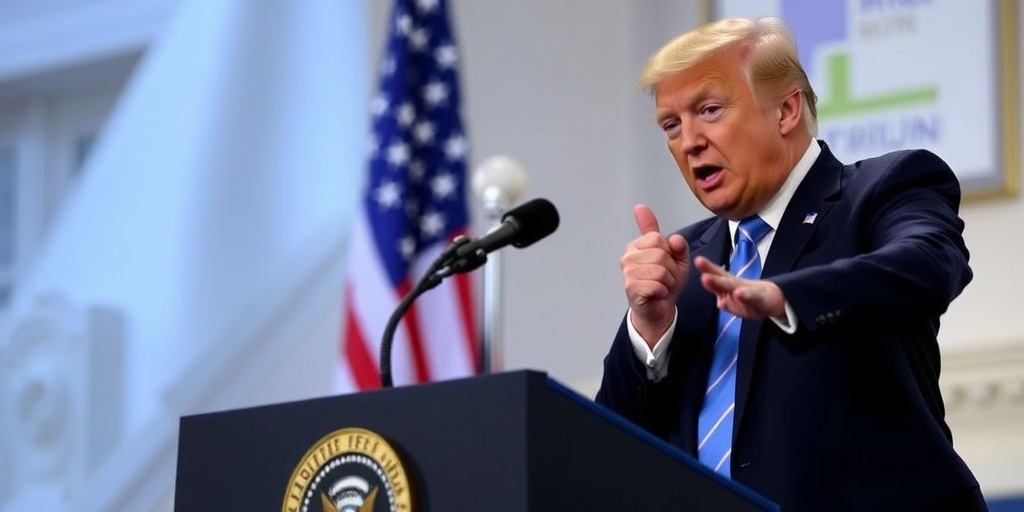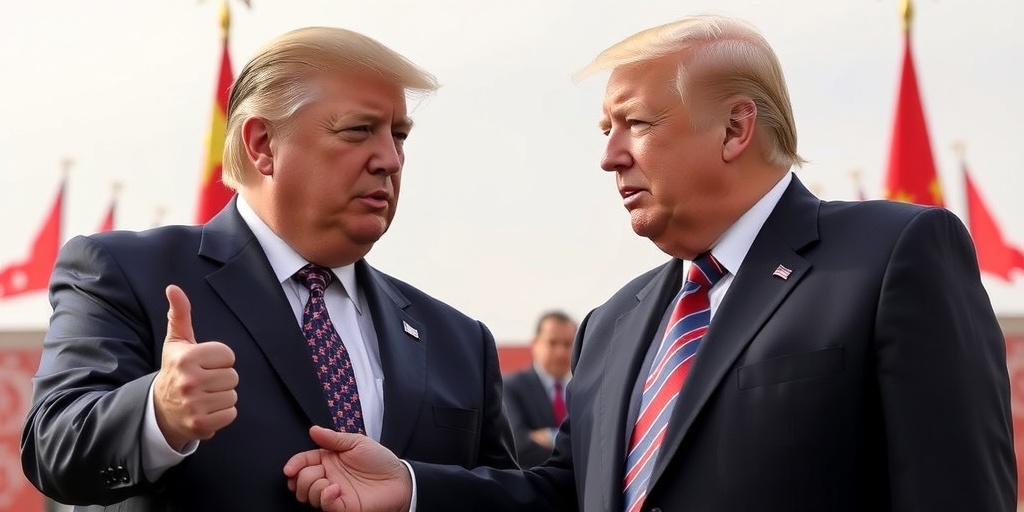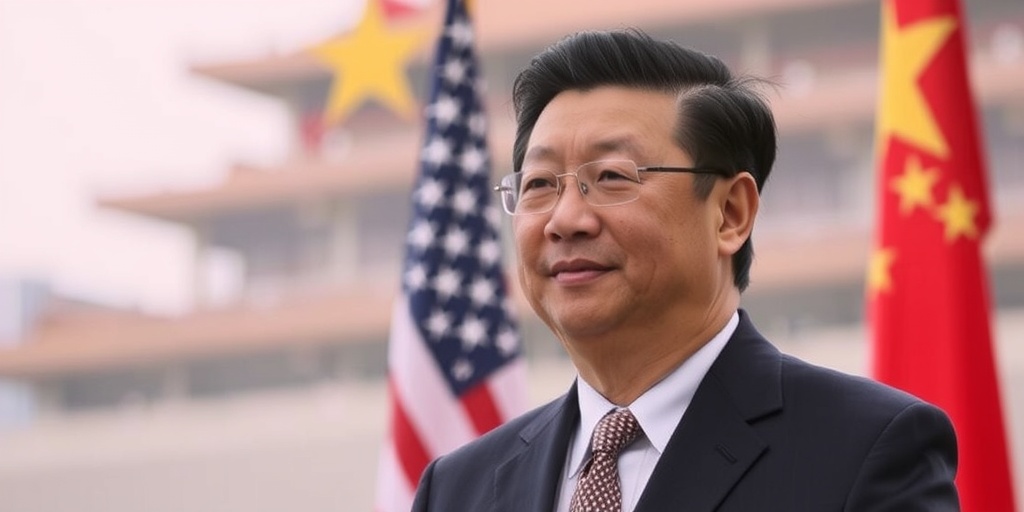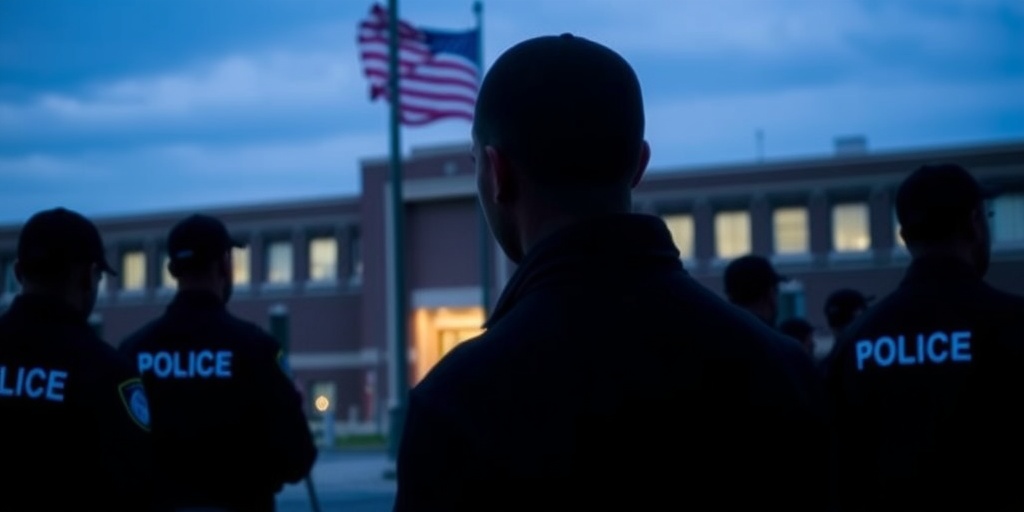Now Reading: Kennedy Meets Tribal Leader Amid HHS Cuts Tensions
-
01
Kennedy Meets Tribal Leader Amid HHS Cuts Tensions
Kennedy Meets Tribal Leader Amid HHS Cuts Tensions

Health Secretary Robert F. Kennedy Jr. Faces Mixed Response at Tribal Self Governance Conference
Amid a pivotal moment in his tour, Health Secretary Robert F. Kennedy Jr. was set to address a significant crowd at the Gila River Wild Horse Pass Resort and Casino in Chandler, Arizona. As he prepared to take the stage, the governor of the Gila River Indian Community, Stephen Roe Lewis, was still at the podium, expressing concerns regarding actions taken by the Trump administration that could adversely affect Native communities.
Governor Lewis emphasized the importance of recognizing the unique political status of tribes, stating, “Let me repeat that: We have spent a good part of this year providing education on why tribes have a political status that is not D.E.I.” The audience of 1,200 applauded and cheered, reflecting their shared sentiment. He further stressed that the cuts proposed by the restructured Department of Government Efficiency necessitated a careful, nuanced approach, advocating for a “scalpel rather than a chainsaw” when implementing changes.
Kennedy was in Arizona as part of his "Make America Healthy Again" tour, which also included stops in other Southwestern states. The event coincided with the Tribal Self Governance Conference, celebrating 50 years of tribal sovereignty under the Indian Self-Determination and Education Assistance Act, an important legislation enacted in 1975 that aimed to empower Native communities by allowing them to manage their own programs in line with their cultural needs.
Kennedy has demonstrated a longstanding commitment to improving tribal health, citing familial ties to advocacy and personal experiences from his childhood spent visiting American Indian reservations. However, his visit was marred by recent criticisms regarding his administration’s handling of tribal issues, including substantial layoffs within the Administration for Children and Families, and the shutdown of several regional offices that previously catered to the Indigenous population.
During his onstage appearance, Mr. Kennedy assured attendees that parts of the Indian Health Service would be exempt from certain recent executive orders, a statement that garnered a positive response. The dialogue turned collegial as officials explored strategies to enhance the health of tribal communities. Kennedy addressed the alarming rates of obesity affecting Native populations, stating, “If we’re really going to change public health on the reservations and end this crisis, we need to address what’s causing the crisis, which is food systems.”
Nonetheless, disconnection was palpable at times during the exchange. Kennedy referenced his childhood experiences at powwows on Martha’s Vineyard, sharing anecdotes about oysters, which some attendees may have found irrelevant to the pressing health concerns they face. Further, he suggested the implementation of “robotic nurses” and A.I. systems to ease healthcare accessibility, which was met with boos from the audience.
“We are going to try to roll out systems like that in Indian Country — we’d like to make Indian Country pilot programs for these kinds of systems,” he announced, only to be met with veiled skepticism from those present. He justified this initiative by pointing out the accessibility issues faced by remote communities, especially in areas like Alaska.
Kennedy’s involvement with Indigenous communities stretches back to the 1990s, during which he took part in negotiations to preserve tribal lands from various industrial developments. His prior role as one of the first editors of the influential Native American newspaper, Indian Country Today, highlights his longstanding commitment to Indigenous issues.
During his confirmation hearings, he lamented the ongoing challenges within the Indian Health Service, echoing sentiments expressed by his father, the late Robert F. Kennedy, and his uncle, President John F. Kennedy, who had strongly criticized the service decades ago. During those proceedings, he vowed to place Native leaders in influential positions within his department and addressed the need for innovative solutions like telemedicine to meet unique cultural and logistical challenges.
Despite his pledges, he did not directly respond to Senator Lisa Murkowski’s concerns about health disparities, which included significant issues related to mental health, substance use, and vulnerability to infectious diseases among Native Americans. Murkowski urged Kennedy to leverage his position to build trust regarding vaccinations within Indigenous populations.
On the day of his visit, Kennedy also toured Native Health, a federally qualified health center serving Native Americans through various primary care clinics and community programs. His staff confirmed that the tour aims to enhance outreach to tribal groups, including visits to educational institutions in New Mexico serving predominantly Native students.
At a news conference later that day at the Arizona State Capitol, Kennedy defended his agency’s response to an ongoing measles outbreak, asserting that it served as “a model for the rest of the world.” However, when a reporter began questioning him about his views on the MMR vaccine, attendees booed vociferously, demanding the journalist’s removal from the premises. The incident underscored the tensions and challenges still present in the discourse surrounding health care within Native communities.
As Kennedy’s tour continues, the mixed reactions he received at the Tribal Self Governance Conference highlight the complexities of his role as a health advocate for Indigenous populations in light of ongoing criticisms of his administration’s policies.
Stay Informed With the Latest & Most Important News
Previous Post
Next Post
-
 01New technology breakthrough has everyone talking right now
01New technology breakthrough has everyone talking right now -
 02Unbelievable life hack everyone needs to try today
02Unbelievable life hack everyone needs to try today -
 03Fascinating discovery found buried deep beneath the ocean
03Fascinating discovery found buried deep beneath the ocean -
 04Man invents genius device that solves everyday problems
04Man invents genius device that solves everyday problems -
 05Shocking discovery that changes what we know forever
05Shocking discovery that changes what we know forever -
 06Internet goes wild over celebrity’s unexpected fashion choice
06Internet goes wild over celebrity’s unexpected fashion choice -
 07Rare animal sighting stuns scientists and wildlife lovers
07Rare animal sighting stuns scientists and wildlife lovers





















